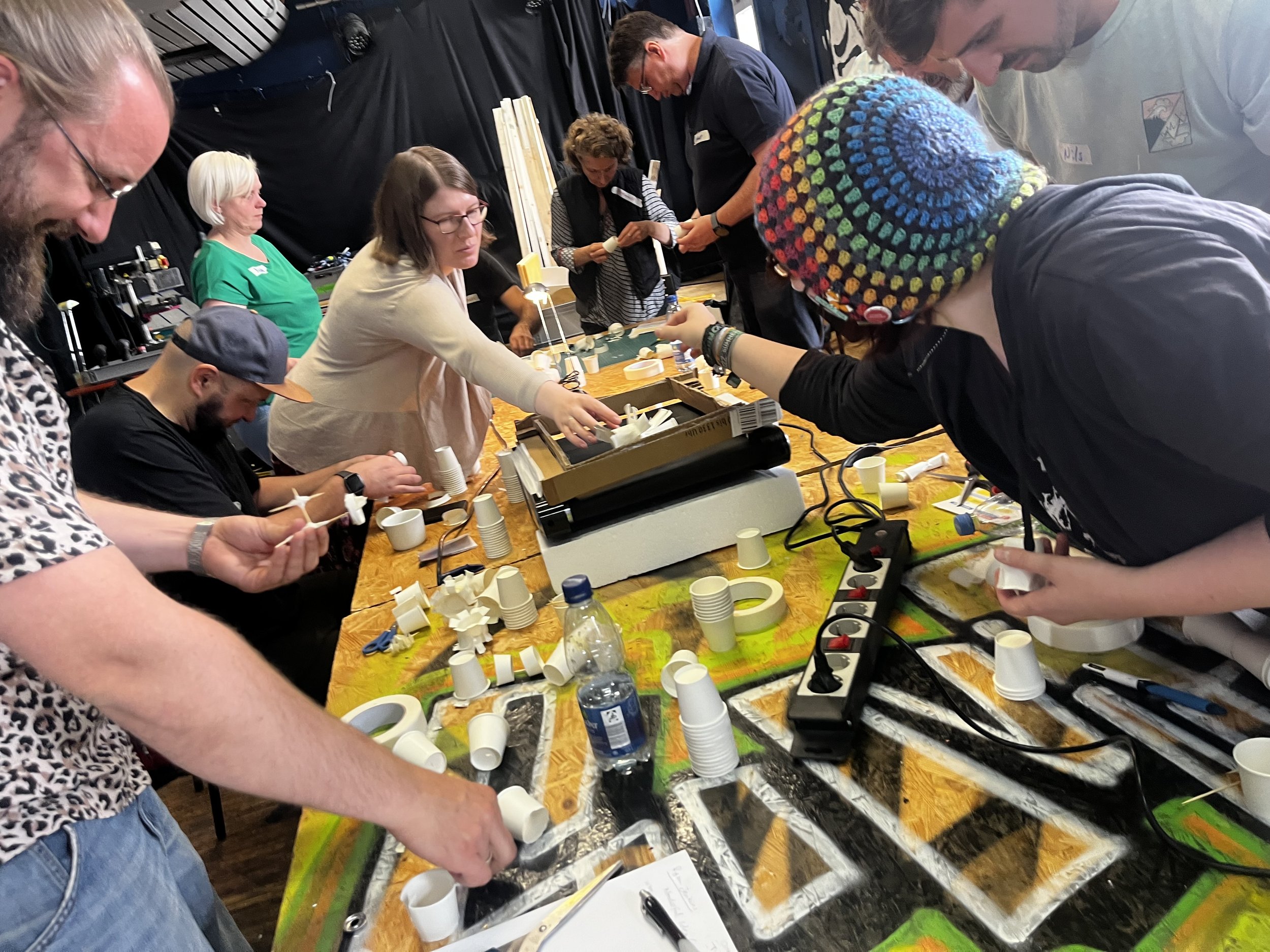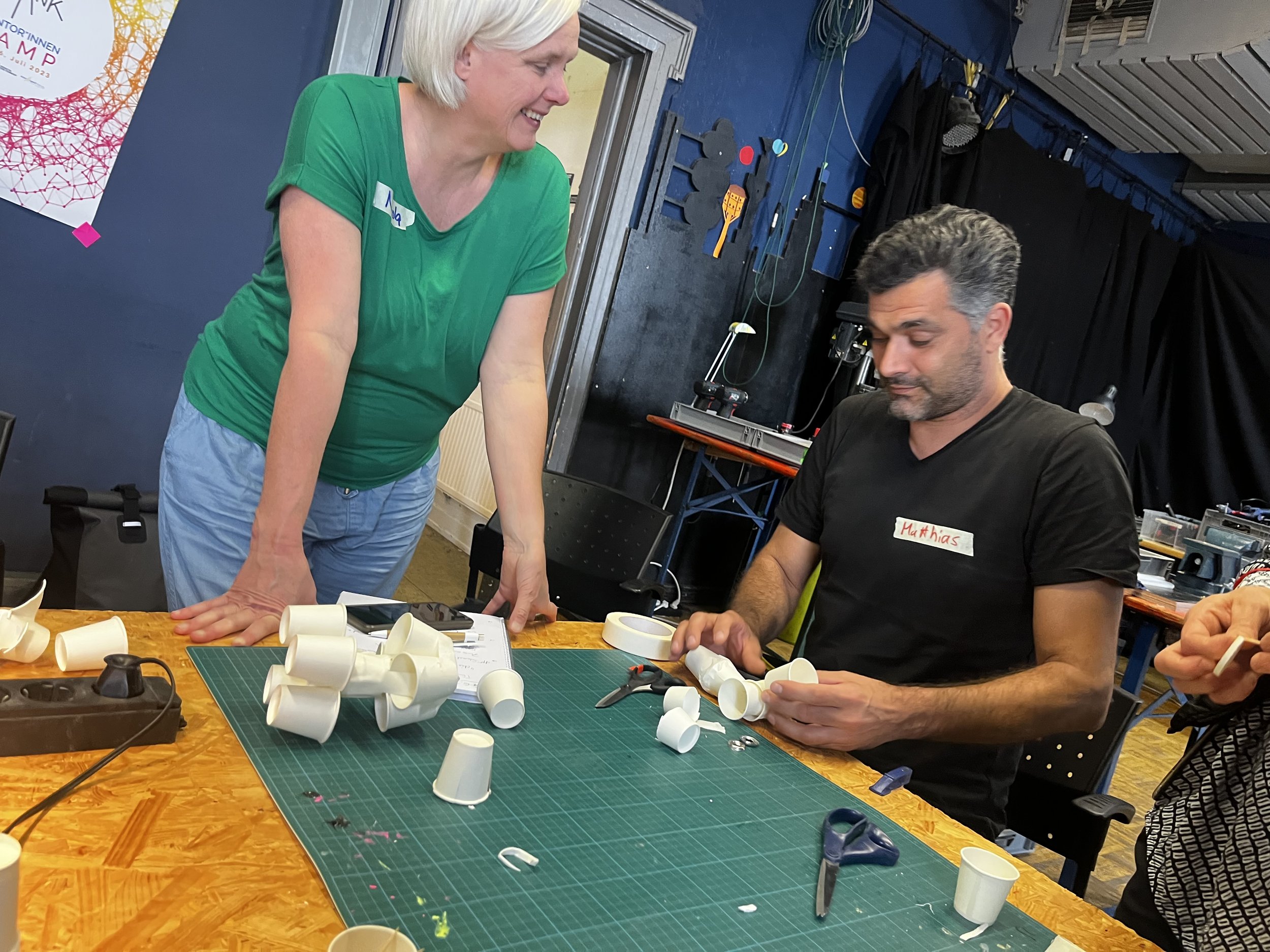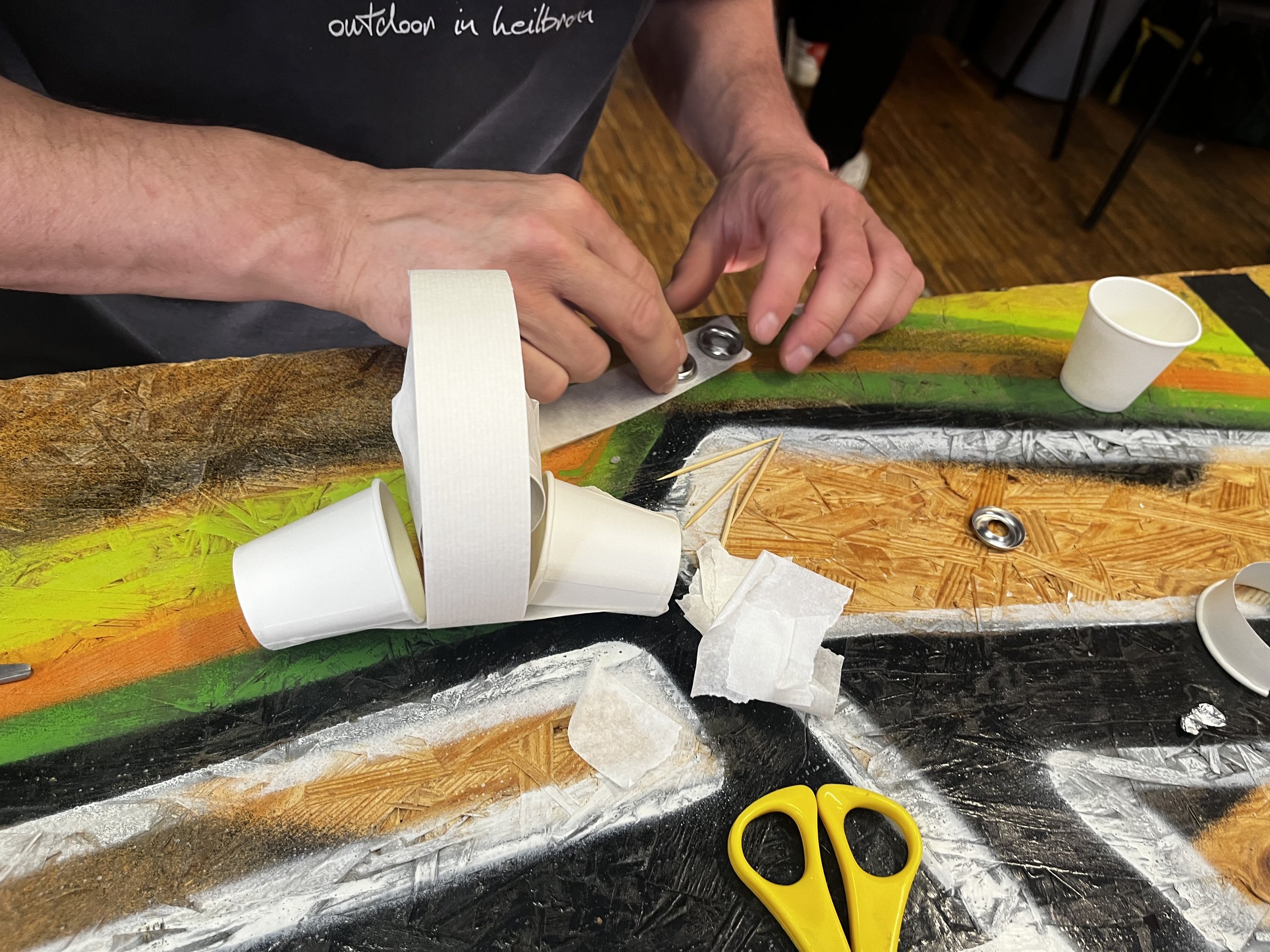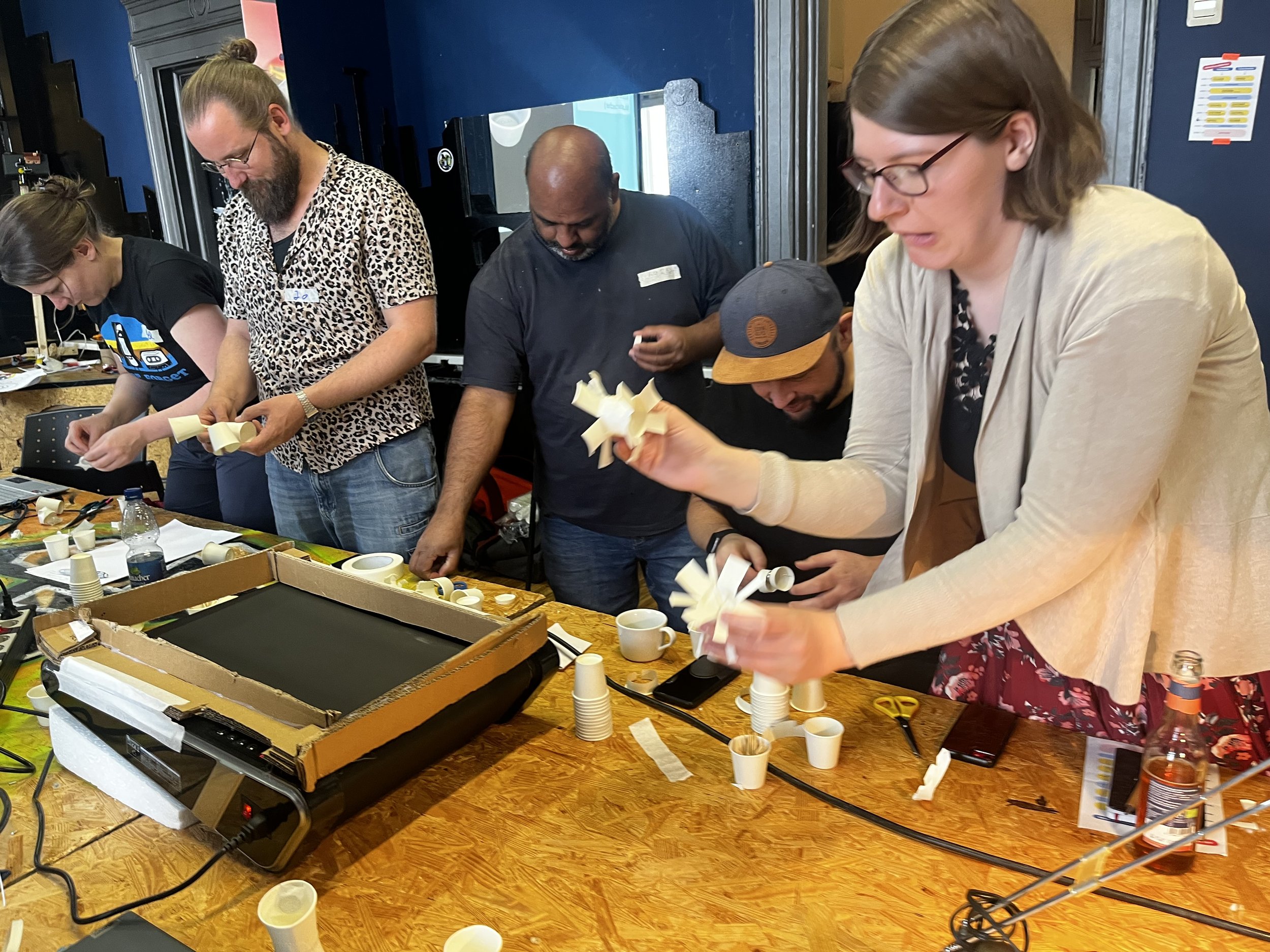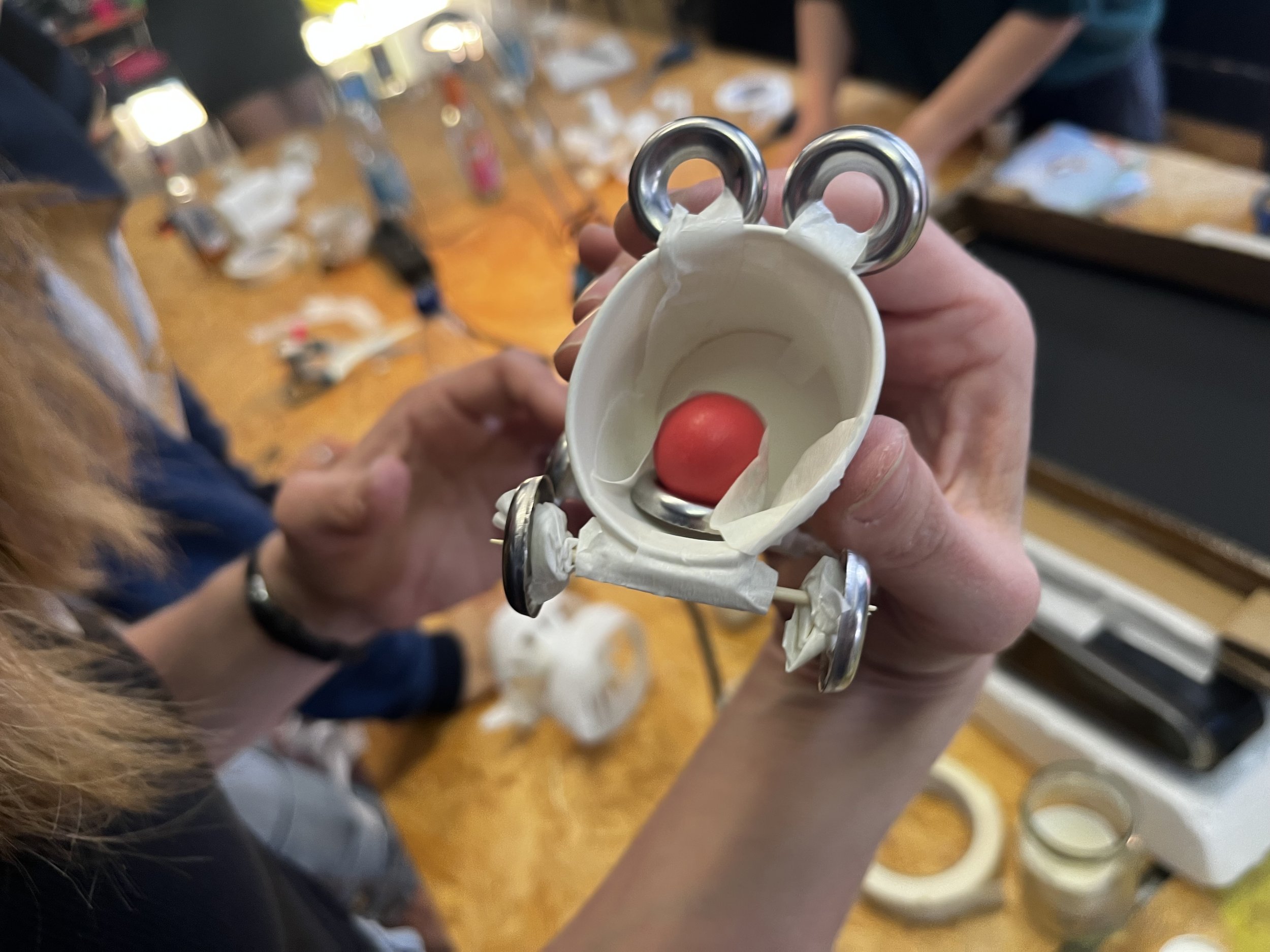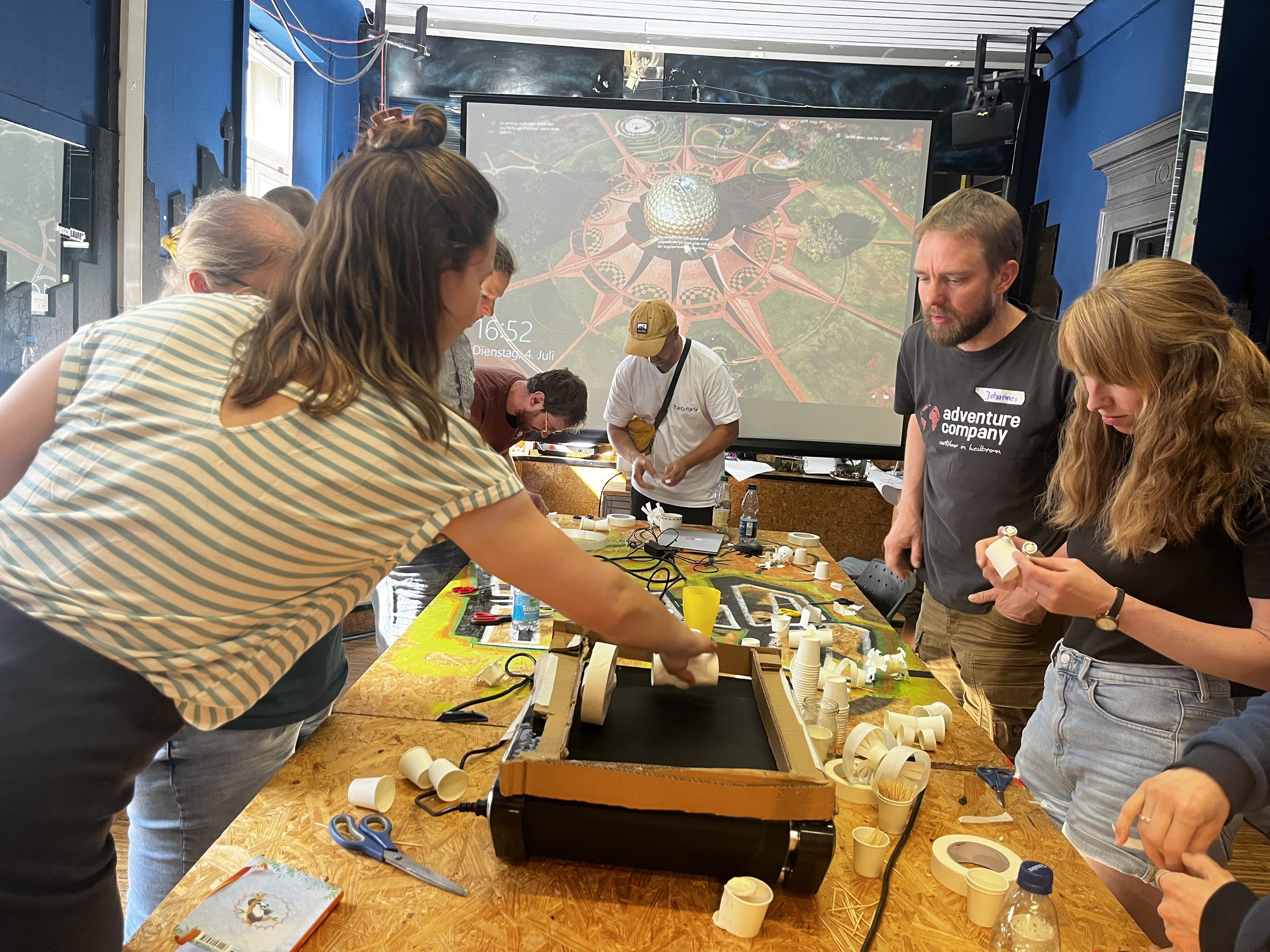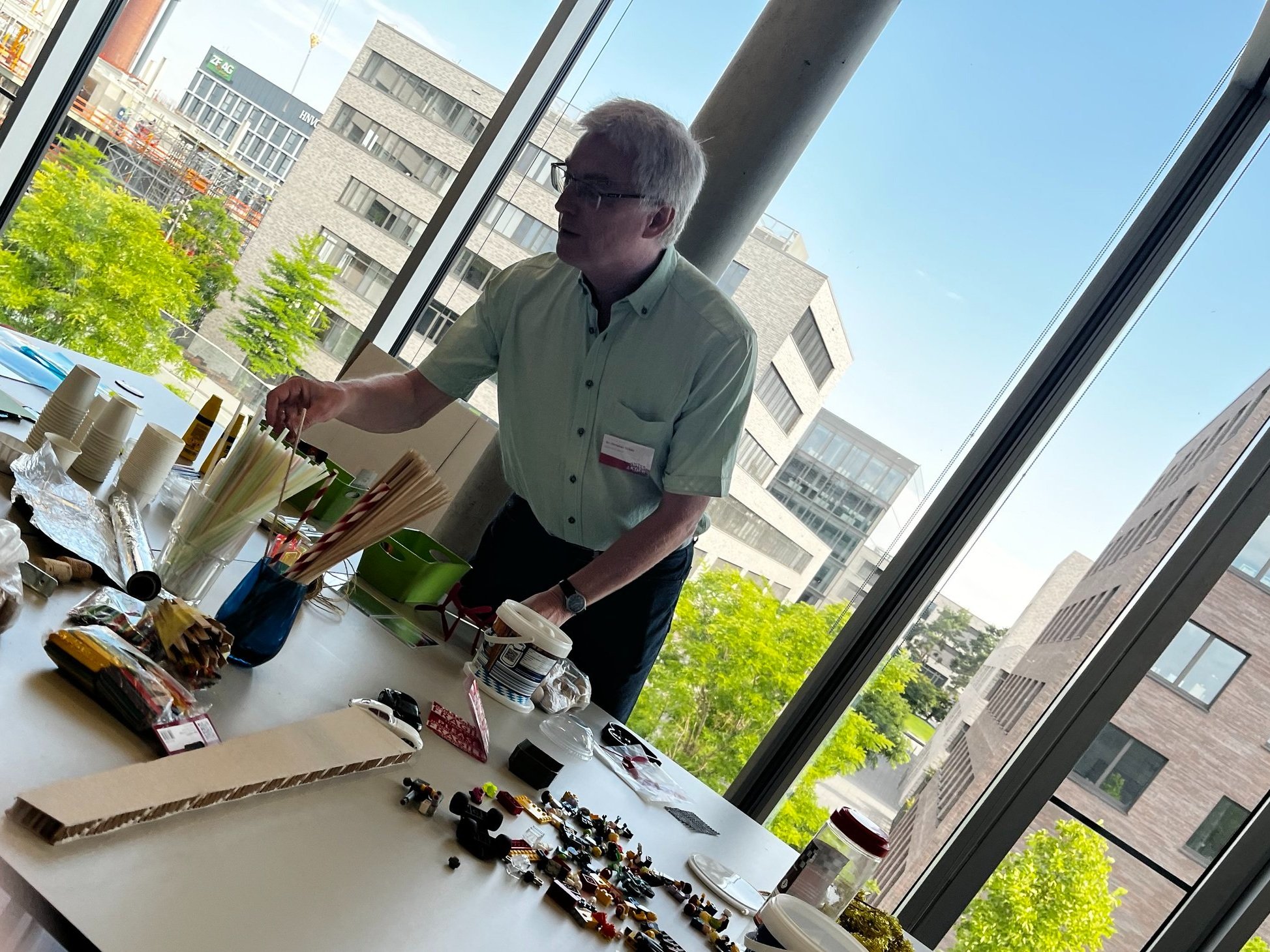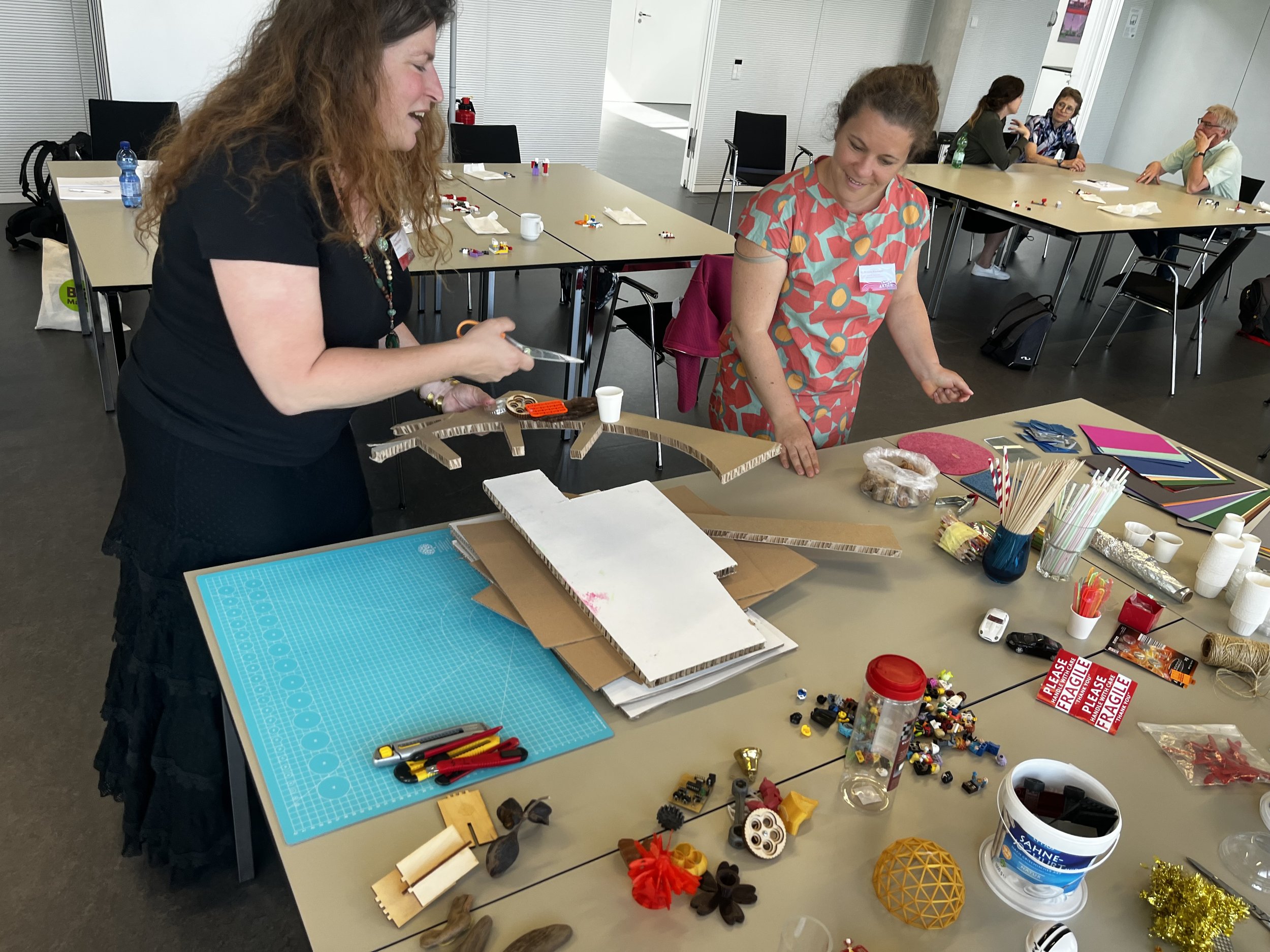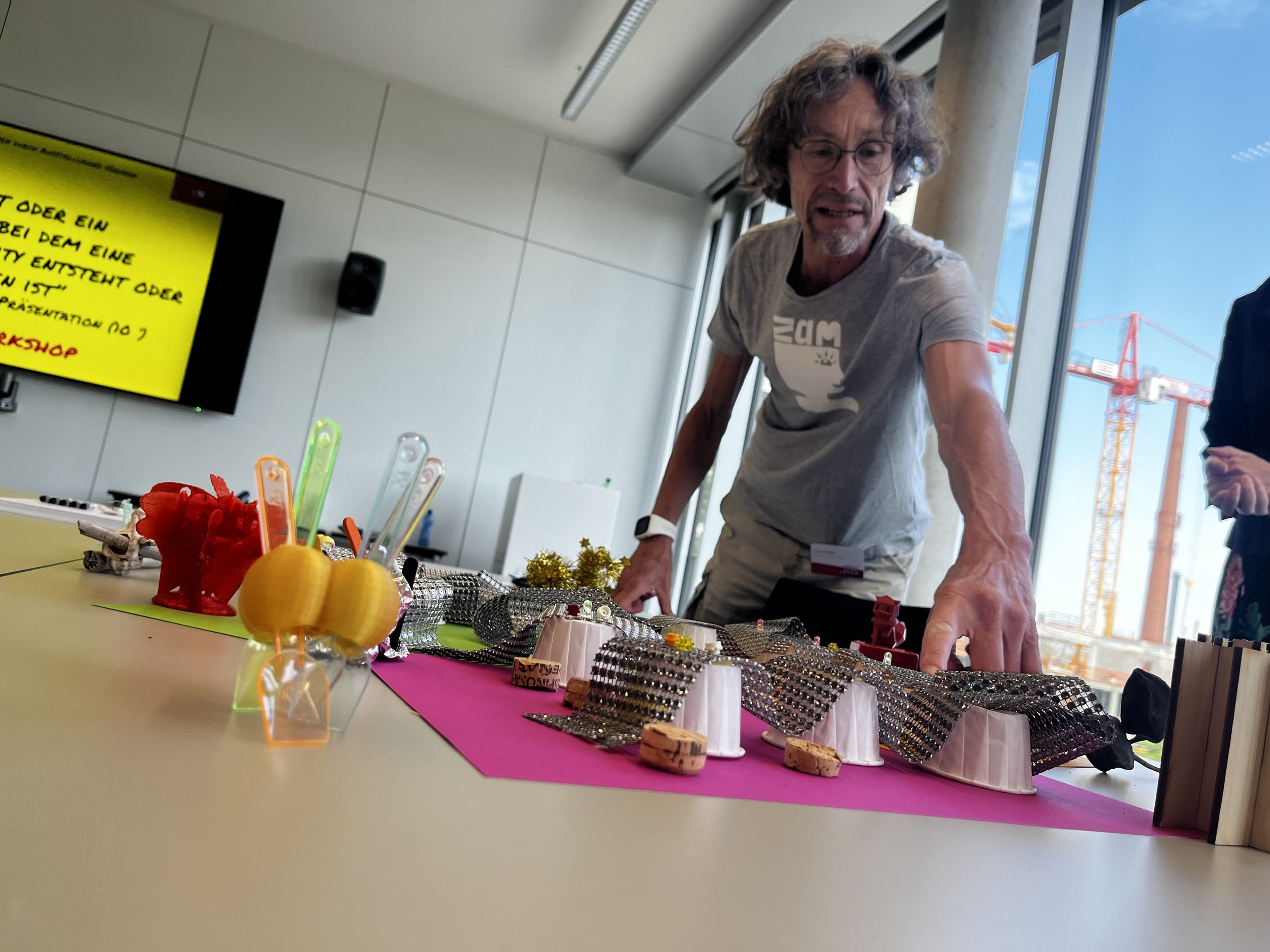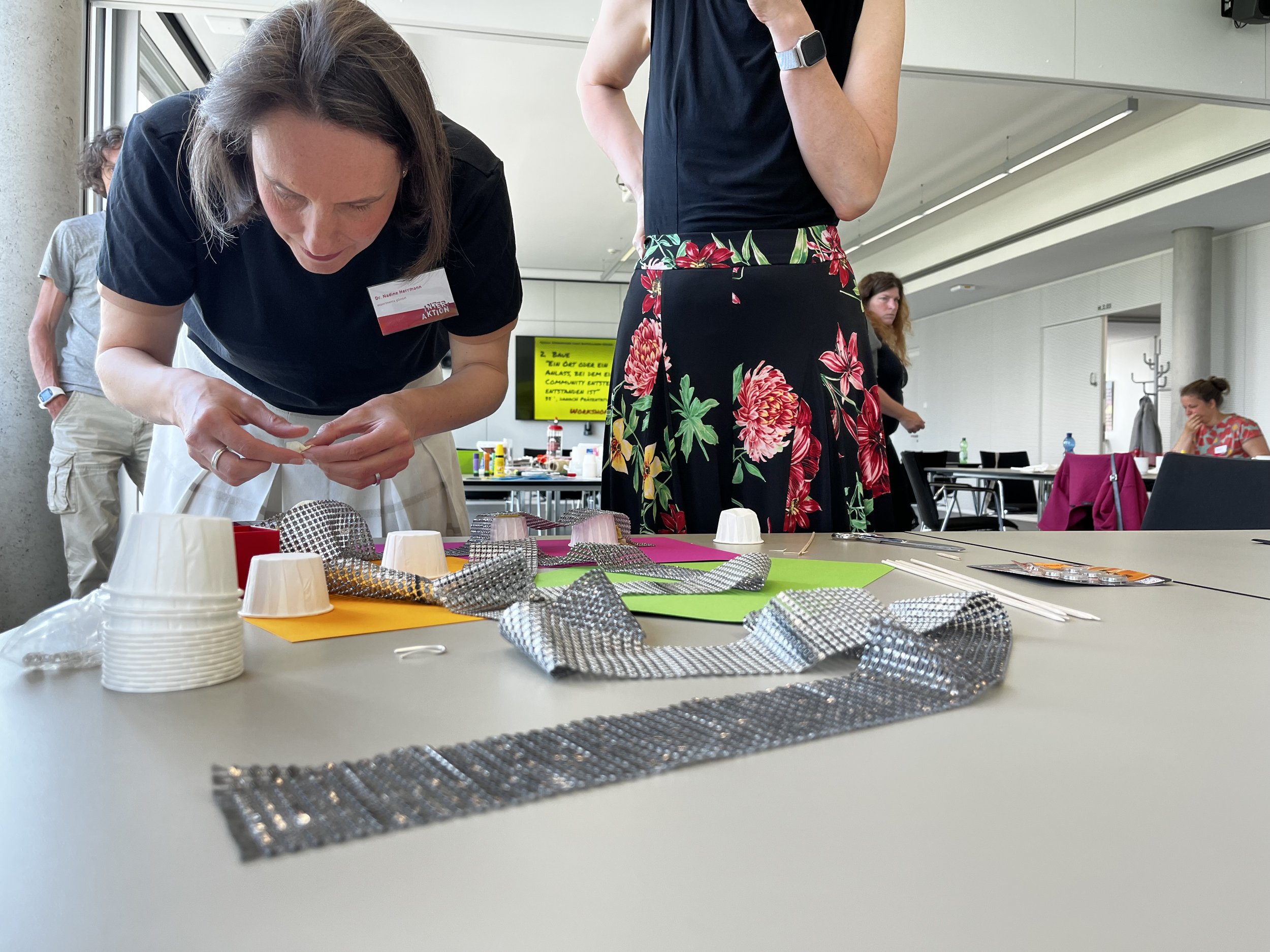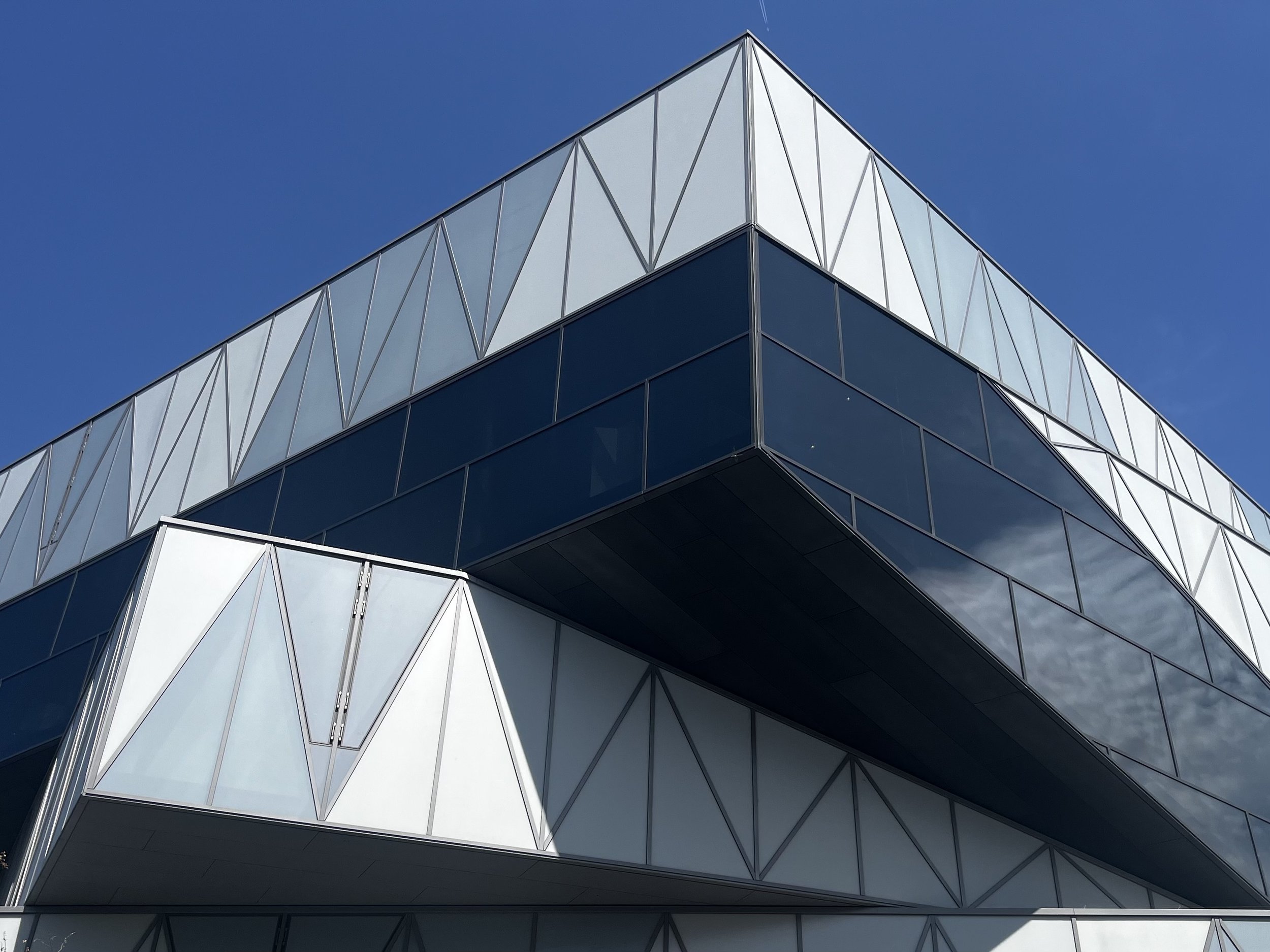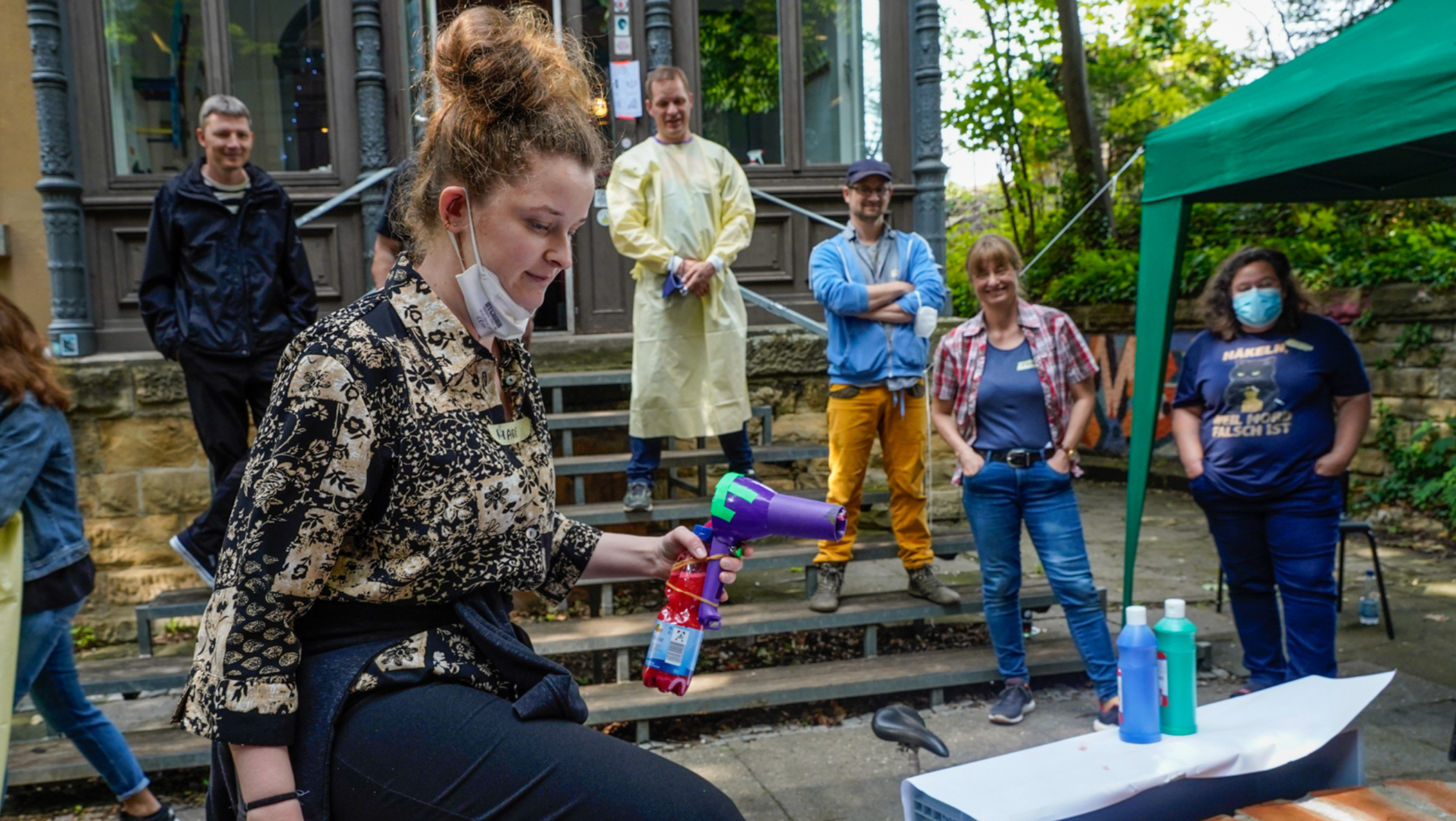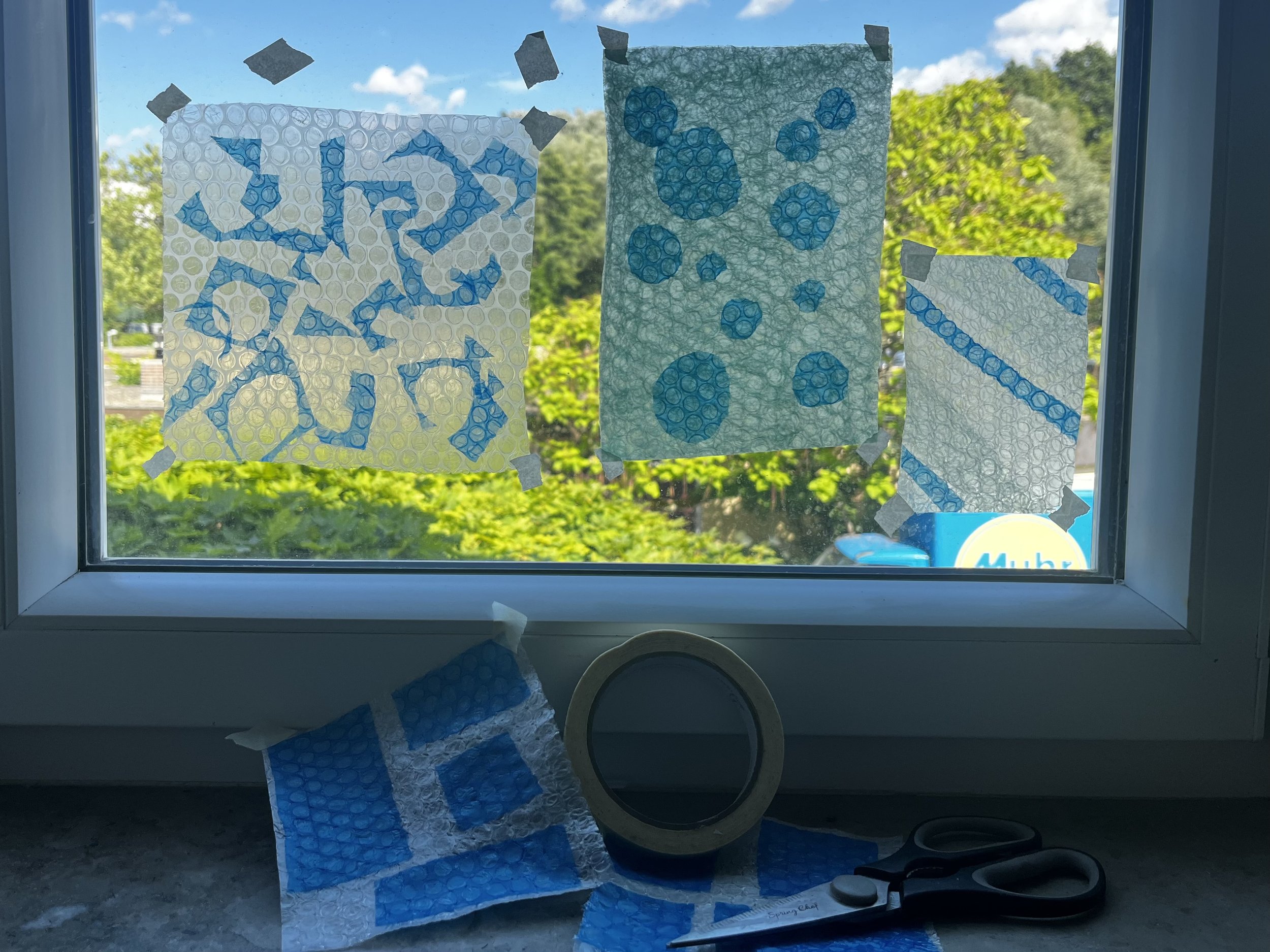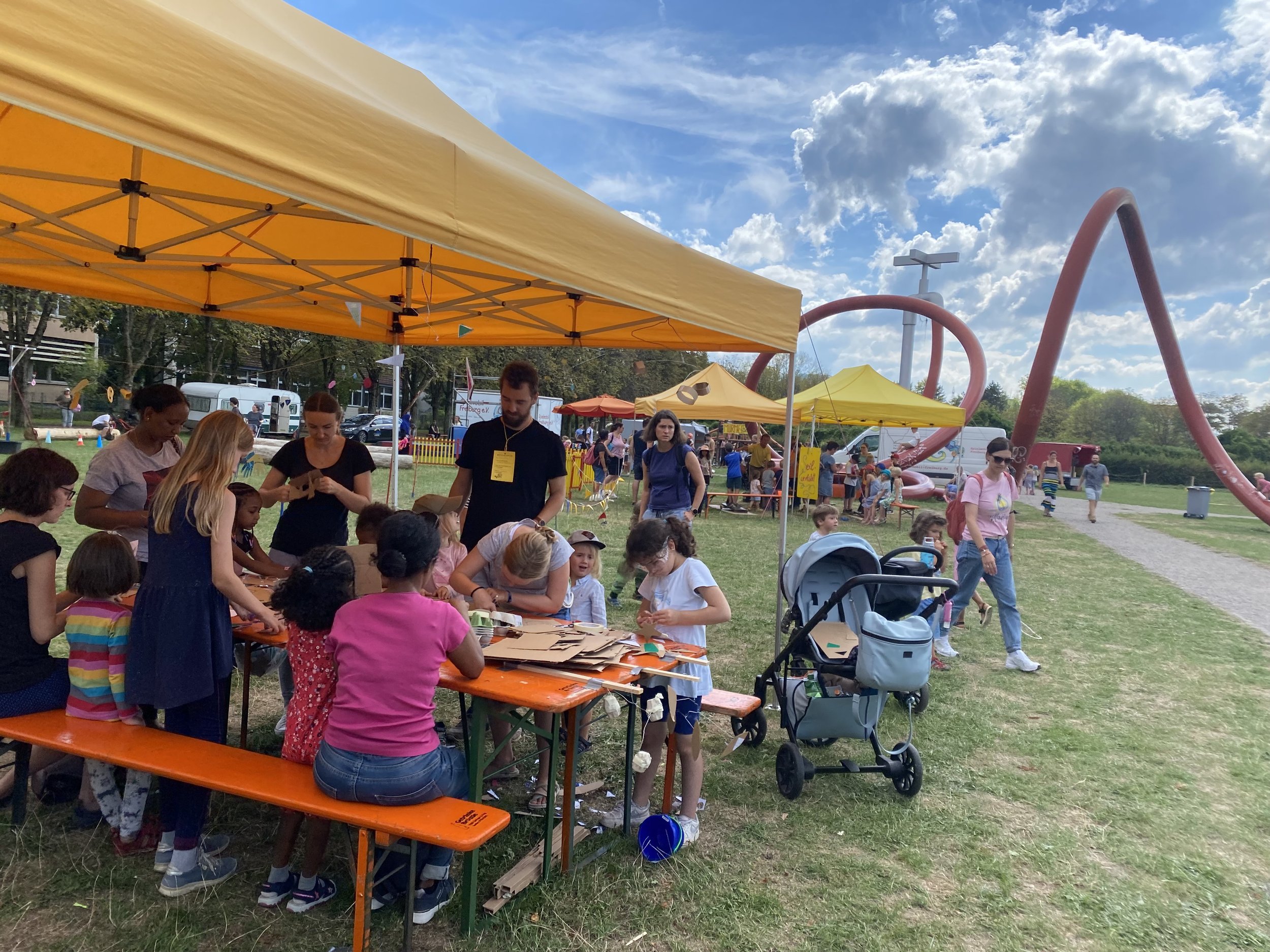Workshops at TinkerTank and Experimenta
This past week I had two fun chances to try out some new tinkering prototypes with a local audience of teachers, museums educators and exhibit designers.
For the first workshop, I joined colleagues at TinkerTank in Lugwigsburg for the Mentor:innen camp, a four day experience for professionals interested in learning more about making and tinkering. There were about twenty five participants from a range of institutions like libraries, schools, makerspaces and museums across Baden-Württemberg and Germany.
I joined in on the second day of the workshop where the TinkerTank team planned inspirations from outside makers and educators including Julian Hammer from ZAM makerspace in Erlangen, Bleeptrack (a creative technologist) and Julian Jungel from Die Hochschule für Schauspielkunst Ernst Busch in Berlin combining technology and theater. It was really cool to get to know a bit more about these tinkerers.
For my presentation and activity I decided to share a half-baked (or “halbgar” in german) treadmill roller prototype that I have been working on with the Tinkering Studio and other playful learning museum network partners. After a little introduction the group started tinkering and this experience opened up conversations about content vs. process, how to support learners to get quickly engaged in a project and the relation between low-threshold and wide walls activities.
One new thing that I tried were using paper cups instead of the plastic sample cups (because those are hard to find in Germnay). I also constructed a whole frame out of cardboard which worked well to have the designs stay on the belt. I only could bring one treadmill because I traveled by train and this hardware is really heavy. That’s something to think about for both pop-up workshops as well as set up and clean up in a school or museum.
The presentation was also a little scary because it was the first tinkering workshop that I have led for professionals in German (although I had a lot of impromptu translation help from the TinkerTank team). But I was really happy to be able to attempt to make the group feel comfortable with their own language and push my limits as a workshop facilitator in another language.
At the end of the day we sat in a circle and discussed inspirations for tinkering projects and what some of our next steps will be. I’m looking forward to continuing conversations and collaborations with many of the workshop participants.
Later in the week, I traveled to Experimenta in Heilbronn for the Inker.aktion conference which brings together museum educators and exhibition designers. I collaborated with Jochen Hunger from ZAM in Erlangen for a workshop on community in makerspace.
Our goal was to get the participants to approach the challenging topic a bit differently and “think with their hands” as they examined ideas individually and in a small groups. We started with handing out each group a small selection of LEGO bricks and asked them to spend five minutes constructing something that represented an early memory of a moment they felt part of a community. They then went around and explained what they built and why, identifying some of the qualities of the experiences.
For the second part of the workshop we expanded the materials set to include cardboard, recycled parts, craft materials, electronics and more. The participants worked in small groups to construct a vision of a makerspace or exhibition that felt community oriented. Again we went around and explained what each group added to their design and why.
This workshop format felt a bit new to me because instead of tinkering with a phenomenon, we were using making to express and communicate ideas. This felt valuable to the group and I am curious to how it changes the conversations around a design question. Just like having a concrete project that shows your process of developing understanding with electricity or mechanisms, I can imagine that there are benefits to having a physical prototype that you can look at and refer to in the group discussion.
I’m excited to see how these ideas might develop over time. The group referenced how their thinking had changed over the three days of the conference after seeing keynote presentations from Michael John Gorman from Biotopia and Lori and Johanna from Oakland Museum of CA. I’m glad that we offered the chance for our workshop participants to work through these ideas through hands on projects.
Over the past couple of years I’ve been building my network and working to understand the community of making and tinkering around the Freiburg area. These two experiences were another great step to get to know others doing similar work nearby. Looking forward to next steps with TinkerTank, ZAM, Experimenta and new partners.


